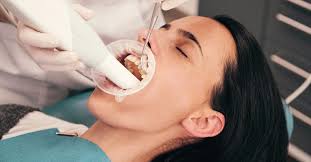Highlights:
- Routine dental cleanings help prevent cavities, gum disease, and other oral health issues.
- Cleanings typically involve scaling, polishing, and fluoride treatment.
- Patients may experience mild sensitivity after cleaning, which is normal.
- Regular visits support early detection of oral health problems, saving time and money.
Why Routine Dental Cleanings Matter
Regular dental cleanings are more than cosmetic—they are a cornerstone of preventive oral care. Visiting a dentist in Virginia Beach, VA for routine cleanings helps prevent cavities, gum disease, and other complications before they become serious. A professional dental cleaning process removes plaque and tartar buildup that daily brushing and flossing cannot reach.
The World Health Organization reports that oral diseases affect nearly 3.7 billion people globally, yet most are preventable. Routine cleanings also allow your dentist to monitor for early signs of issues, including gum inflammation, enamel erosion, and early-stage cavities.
What to Expect During a Dental Cleaning Process
1. Initial Examination
Every dental cleaning process begins with a thorough examination. A dentist or dental hygienist checks teeth and gums for cavities, gingivitis, or other oral health concerns. Small mirrors and tools are used to inspect all tooth surfaces and detect plaque or tartar buildup. This step may also include oral cancer screening depending on age and risk factors.
2. Scaling: Removing Plaque and Tartar
Scaling is the first major step in the dental cleaning process. Plaque, a sticky film of bacteria, hardens into tartar if untreated. Scaling removes this buildup using manual tools or ultrasonic instruments. While mild discomfort may occur, it’s essential for reducing the risk of cavities and gum disease.
3. Polishing: Brightening Your Smile
After scaling, teeth are polished with a rotating brush or rubber cup and a gritty paste. Polishing removes surface stains, smooths teeth, and makes it harder for bacteria to stick. Many patients notice an immediate brighter smile and fresher mouth after polishing.
4. Fluoride Treatment: Strengthening Enamel
Fluoride treatment is often the final step in the dental cleaning process. It strengthens enamel and creates a protective barrier against decay. Fluoride may be applied as a gel, foam, or varnish for a few minutes. This quick and painless treatment is especially beneficial for patients prone to cavities or sensitive teeth.
Common Questions About the Dental Cleaning Process
- Will it hurt? Most cleanings are painless, though sensitive teeth may feel mild discomfort. Communicate with your hygienist for comfort.
- How long does it take? Typical cleanings last 30–60 minutes, depending on oral health.
- How often should I get a cleaning? Most patients benefit from every six months, but some may need more frequent visits.
- Can I eat before my cleaning? Yes, but avoid sticky or sugary foods. Brush beforehand.
- Is sensitivity normal after cleaning? Mild gum or tooth sensitivity is normal and usually subsides within a day or two.
Benefits of Regular Dental Cleanings
Prevent Cavities and Tooth Decay
Removing plaque and tartar reduces the risk of cavities, helping avoid invasive treatments like fillings, root canals, or crowns.
Support Gum Health
Dental cleanings remove bacteria that cause gum inflammation and infection, helping prevent gum disease linked to heart disease and diabetes.
Fresh Breath and Confidence

Cleanings eliminate odor-causing bacteria, leaving a fresh mouth and boosting confidence.
Early Detection of Oral Health Issues
Regular cleanings allow early detection of cavities, enamel erosion, and gum problems, ensuring timely intervention.
Tips for Maintaining Oral Health Between Cleanings
- Brush twice daily and floss once daily to remove plaque.
- Use fluoride-based mouthwash to strengthen enamel.
- Maintain a balanced diet and limit sugary foods.
- Avoid tobacco products to reduce the risk of gum disease and oral cancer.
- Stay hydrated to promote saliva production and naturally protect teeth.
Choosing the Right Dentist in Virginia Beach, VA
Select a dentist known for patient-centered care and a welcoming environment. A skilled dentist will:
- Explain each step of the dental cleaning process
- Answer questions about preventive care
- Offer personalized guidance for home routines
- Provide options for sensitive teeth or dental anxiety
Regular visits ensure your smile stays healthy, bright, and confident.
Final Thoughts
A professional dental cleaning process is essential for preventive oral care. It removes plaque and tartar, strengthens teeth, and maintains healthy gums. Visiting a trusted dentist in Virginia Beach, VA ensures your oral health is monitored, concerns are addressed, and your smile remains polished and confident.





